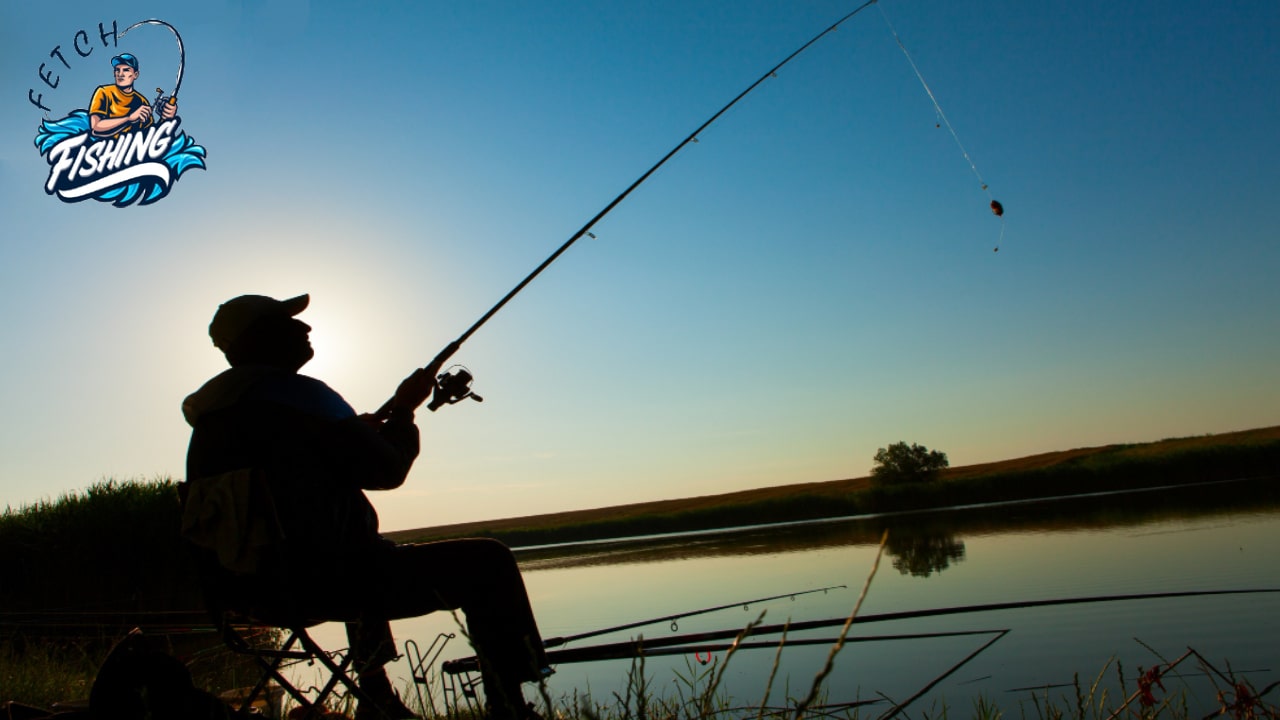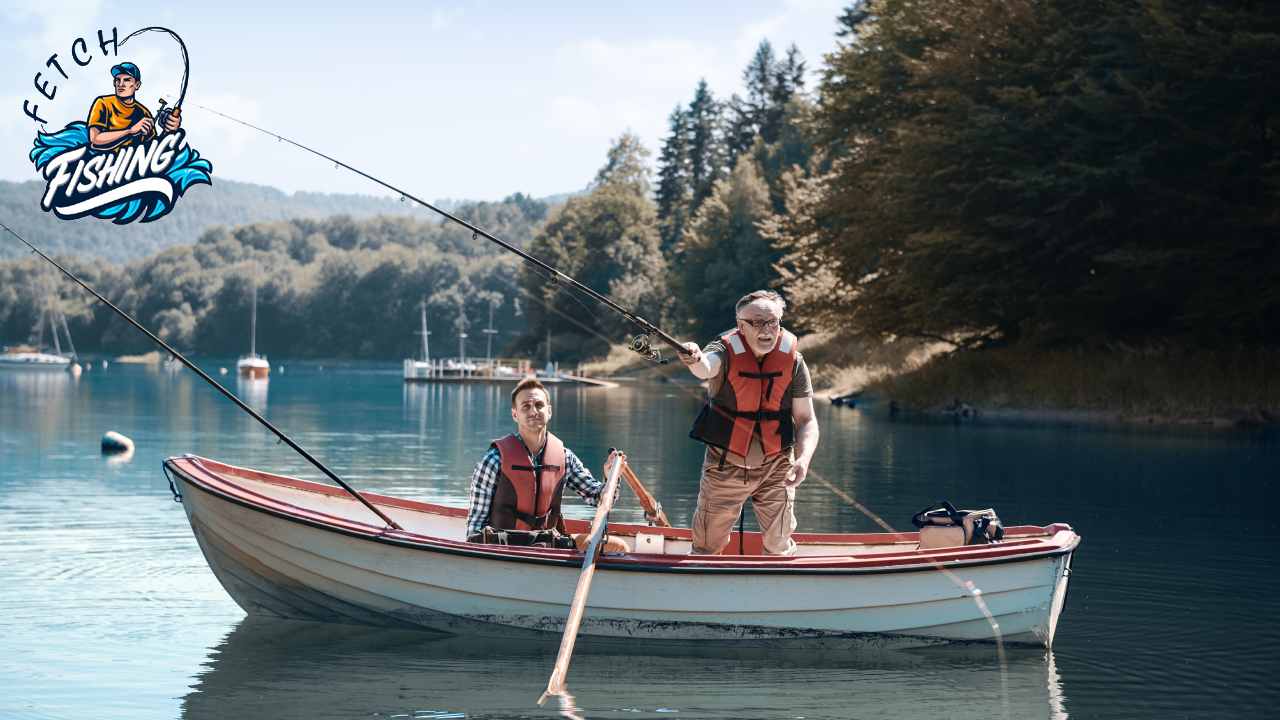
Fishing is a popular pastime enjoyed by many in New Jersey. But before you can cast your line in the water, you need to have a valid NJ fishing license. The state’s Department of Environmental Protection (NJDEP) issues these licenses, which are required for all anglers over the age of 16. In this blog post, we’ll walk you through the rules and regulations you need to know to get an NJ fishing license.
Why Do You Need an NJ Fishing License?
An NJ fishing license is required to fish in public waters within the state’s jurisdiction. The license helps to fund conservation and management efforts for fish and wildlife populations, habitat restoration, and research. It also ensures that anglers abide by state regulations, such as catch limits and seasons, to protect the fish populations and maintain a sustainable fishery.
Here are some of the explained reasons why you need an NJ fishing license:
Conservation of Fish Populations
The NJDEP Division of Fish and Wildlife is responsible for managing the state’s fish populations to ensure their sustainability for future generations. The revenue from fishing licenses is used to fund research, management, and conservation programs that help protect and enhance fish populations in NJ’s waters.
By obtaining a fishing license, you are helping to support these programs and ensure the health and sustainability of fish populations in the state.
Enforcement of Fishing Regulations
Fishing licenses also help to enforce regulations designed to protect fish populations and their habitats. These regulations include size and possession limits, gear restrictions, and seasonal closures, among others.
Fishing without a license is illegal and can result in fines and other penalties. In addition, licensed anglers are more likely to be aware of and follow these regulations, helping to ensure that fish populations are not overharvested or otherwise negatively impacted.
Economic Benefits
Fishing is a popular activity in NJ, with anglers coming from all over to fish in the state’s waters. The revenue generated from fishing licenses and related fees helps to support the local economy, including businesses such as bait and tackle shops, marinas, and fishing charters.
In addition, the recreational fishing industry supports jobs in related industries such as hospitality and tourism. By obtaining a fishing license and participating in the sport, you are helping to support these local businesses and the economy as a whole.
Education and Outreach
The NJDEP Division of Fish and Wildlife provides a wealth of information and resources for anglers, including educational programs and outreach initiatives. These programs help to promote safe and responsible fishing practices, as well as provide information on the latest research and management efforts related to fish populations.
Types of NJ Fishing Licenses
NJ offers several types of fishing licenses, including:
Resident Fishing License – This license is for individuals who have lived in NJ for at least six consecutive months before purchasing the license. The cost for a resident fishing license is $22.50 for an annual license, $12.50 for a seven-day license, and $6.50 for a one-day license.
Non-Resident Fishing License – This license is for individuals who have not lived in NJ for at least six consecutive months before purchasing the license. The cost for a non-resident fishing license is $34.00 for an annual license, $30.00 for a seven-day license, and $10.00 for a one-day license.
Senior Resident Fishing License – This license is for individuals who are 62 years or older and have lived in NJ for at least six consecutive months before purchasing the license. The cost for a senior resident fishing license is $15.00 for an annual license.
Disabled Resident Fishing License – This license is for individuals who have a permanent disability and have lived in NJ for at least six consecutive months before purchasing the license. The cost for a disabled resident fishing license is $2.00 for an annual license.
How to Obtain an NJ Fishing License
A. Online Purchase
To purchase an NJ fishing license online, visit the NJDEP Division of Fish and Wildlife’s website. You must create an account and provide your personal information, such as your name, address, and social security number. You can pay for the license with a credit card, and once you’ve completed the transaction, you can print out your license immediately.
B. In-Person Purchase
NJ fishing licenses are available for purchase at many retail locations, such as bait and tackle shops, sporting goods stores, and department stores. You can use the NJDEP’s license agent locator to find a nearby retailer. You will need to provide your personal information and pay for the license in person.
C. Mail-In Application
If you prefer to purchase your NJ fishing license through the mail, you can download a mail-in application from the NJDEP Division of Fish and Wildlife’s website. You will need to fill out the application and mail it, along with a check or money order for the license fee, to the address listed on the application. Your license will be mailed to you once your application is processed.
NJ Fishing License Fees
As mentioned earlier, the cost of an NJ fishing license varies depending on the license type and whether you are a resident or non-resident.
Resident:
Annual: $22.50
Seven-Day: $12.50
One-Day: $6.50
Non-Resident:
Annual: $34.00
Seven-Day: $30.00
One-Day: $10.00
Senior Resident (62 or older):
Annual: $15.00
Disabled Resident:
Annual: $2.00
It’s worth noting that these fees are subject to change, so be sure to check the NJDEP Division of Fish and Wildlife’s website for the most up-to-date information.
NJ Fishing Regulations You Need to Know
Now that you have your NJ fishing license, it’s important to be aware of the regulations you need to follow while fishing in the state.
A. Size and Possession Limits
NJ has specific size and possession limits for certain fish species. For example, the minimum size limit for striped bass is 28 inches, and the possession limit is one fish per day. Other fish species, such as black sea bass and fluke, also have size and possession limits. Be sure to check the NJDEP Division of Fish and Wildlife’s website for a complete list of size and possession limits.
B. Seasons and Closures
NJ has seasons and closures for certain fish species to protect them during their spawning seasons or when they are most vulnerable. For example, there is a closed season for river herring from January 1 to June 15 each year. There are also closures for certain areas to protect fish populations. Be sure to check the NJDEP Division of Fish and Wildlife’s website for a complete list of seasons and closures.
C. Catch and Release Guidelines
If you catch a fish that you don’t plan on keeping, it’s important to handle it carefully to ensure its survival. The NJDEP Division of Fish and Wildlife recommends using barbless hooks, wetting your hands before handling the fish, and releasing it quickly and gently. You should also avoid taking the fish out of the water for too long.
D. Bait and Tackle Restrictions
NJ has restrictions on the type of bait and tackle you can use for certain fish species. For example, it is illegal to use natural bait or scents to fish for striped bass in marine waters from April 1 to December 31. It’s important to check the NJDEP Division of Fish and Wildlife’s website for a complete list of bait and tackle restrictions.
Frequently Asked Questions (FAQs)
Do I need a fishing license to fish in a private pond or lake?
No, you do not need an NJ fishing license to fish in a private pond or lake.
Can I fish for free if I am under the age of 16?
Yes, anglers under the age of 16 do not need an NJ fishing license.
Can I fish without an NJ fishing license if I am a non-resident and fishing on a charter boat?
No, all anglers over the age of 16 must have a valid NJ fishing license, regardless of whether they are fishing on a charter boat.
Conclusion
Obtaining an NJ fishing license is a straightforward process, but it’s important to be aware of the rules and regulations you need to follow while fishing in the state. By understanding the regulations and following best practices for catch and release, you can help ensure the health and sustainability of NJ’s fish populations. Don’t forget to also purchase any necessary permits or stamps, such as a trout stamp or freshwater fishing stamp, if you plan on fishing for certain species or in certain locations.
We hope this guide has been helpful in explaining how to get an NJ fishing license and the regulations you need to follow while fishing in the state. Remember to always practice safe and responsible fishing, and enjoy the beautiful waters of NJ.



